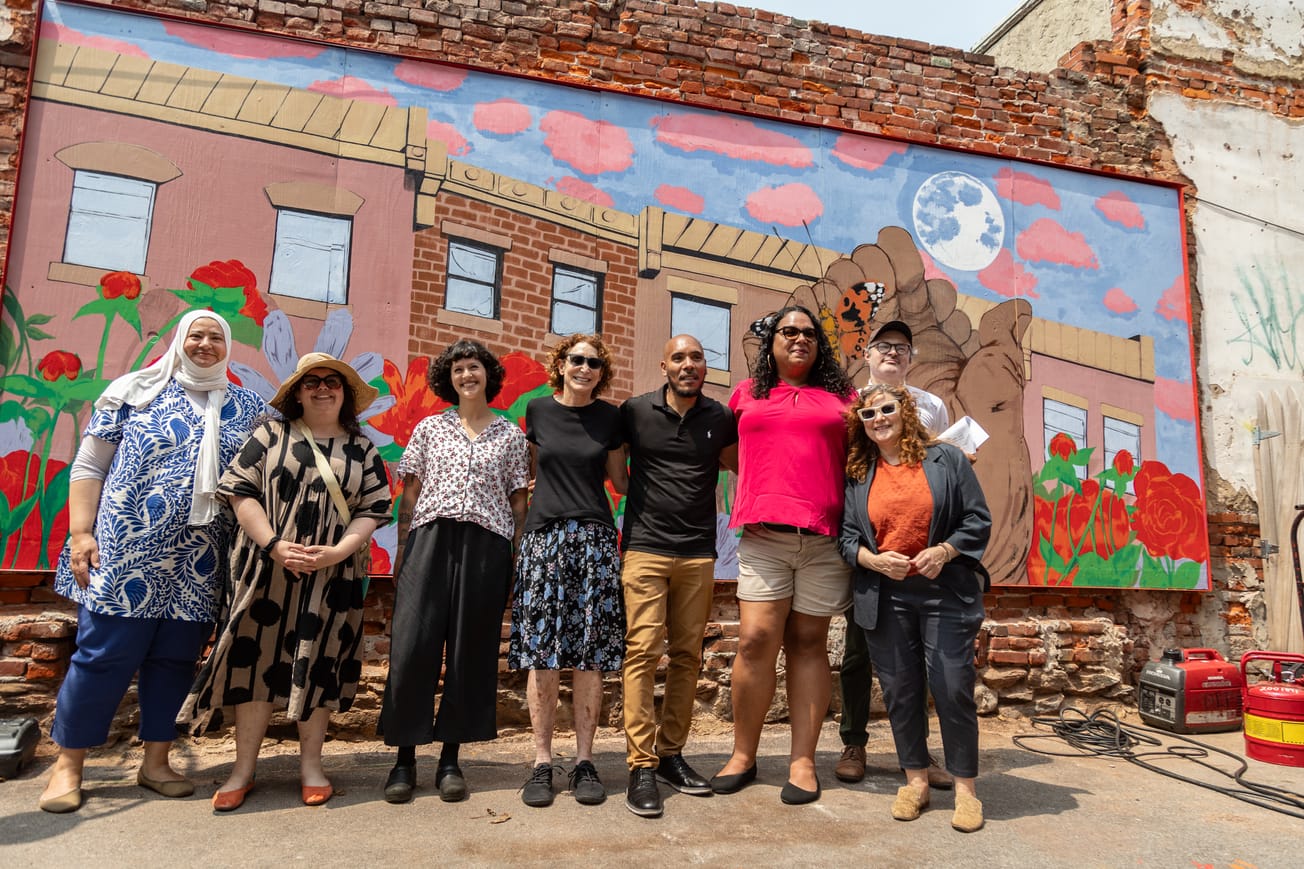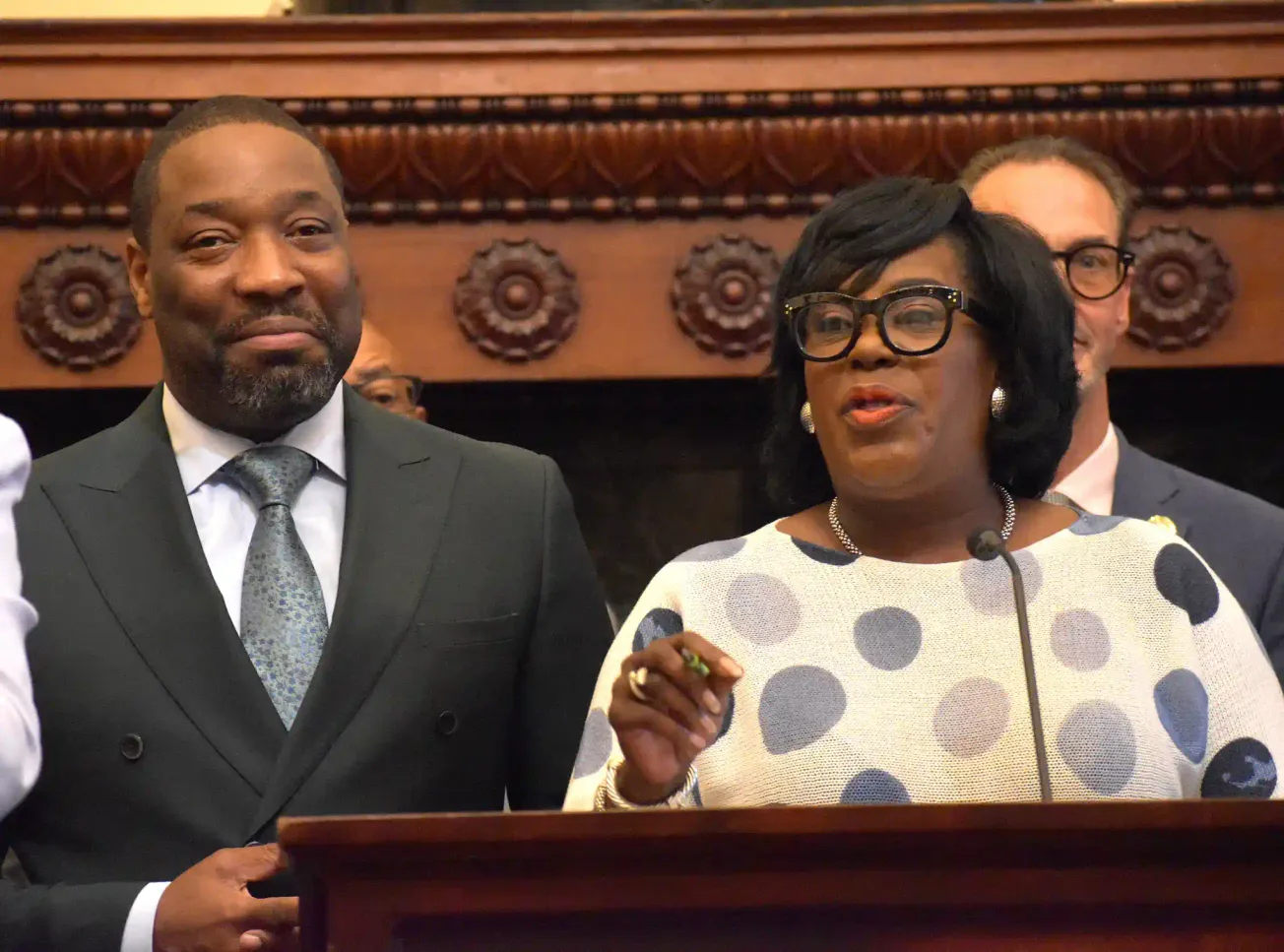As a child, Harry Wilson had a love for writing. But after he enlisted in the military in 1972, he began to write less and less over time.
“Writing is so important, for all of us, to connect with each other — it can teach us to love each other,” Wilson said.
Wilson is one of about 60 veterans living at Edison 64, a veterans housing facility and multiservice center that opened this past summer in Fairhill at 7th and Somerset Streets. The building used to be Thomas Edison High School, which lost 64 students in the Vietnam War — the most deaths from a high school nationwide.
Edison 64 is overseen by the Veterans Multi-Service Center (VMC), a nonprofit on North 4th Street that provides veterans with housing, employment, and benefits assistance. At the facility, care providers like Kathy Salerno work on-site every day from 9 a.m. to 5 p.m. to provide case management, appointment scheduling, and transportation services.
“We’re actually providing all services from within,” said Salerno, the VMC’s director of homeless services. “This idea of services in-house day to day every day is amazing.”
For Salerno, who attended Kensington High School during the Vietnam War, it’s a circumstance she describes as “having come full circle.” She distinctly remembers her classmates’ horror-struck faces when they got their draft papers. Today, she sees some of the men she grew up with accessing their benefits at Edison 64.
According to Salerno, the facility aims to alleviate pressure from veterans so they can focus their energy on activities they’re passionate about — like Wilson and his writing.

Wilson, who is now 67, started misusing drugs and alcohol during the ’70s as a young Army police officer. He struggled to overcome his addiction until later on in life.
“Doing drugs is like playing Russian roulette — it’s like going through the valley of the shadow of death,” Wilson said.
In 1984, Wilson had nowhere to live. He was praying on a hill in Washington D.C. when he heard a minister ask if anyone needed a job. He accepted her offer and began to heal.
“I believe that it was an experience in my life that gave me a spiritual awakening — that there’s something out there greater than me — that I needed at that time,” Wilson said.
From that point forward, Wilson continued to look for resources that could help him grow. His recovery process was not immediate; it took some time. During the mid-nineties, he found shelter through various religious organizations. He found the VA in Coatesville a few years later.
Then the VA helped him move into a housing facility in South Philadelphia near his family and childhood friends. This past September, he moved to Edison 64 with help from the VMC. Without his veteran service network, Wilson said he “might not even be here today.”

Today, Wilson has 21 years of sobriety. He has also rekindled his passion for writing, which he said helps him process his feelings. And now his writing is getting some recognition: A publishing company is interested in one of his children’s short stories, which he named “My Beautiful Baby Girl.”
Now that his story is almost finished, Wilson wants to start reading to children at the library and apply for funding to print his work so he can donate it to schools. He would also like to start reading more, which he said helps him process his emotions, too.
“I want to you know get to a point where I can just sit back and read literature,” Wilson said. “I get feelings when I read a good story.”
But like other aspects of Wilson’s journey as a veteran, he realizes that meeting his goals might take some time.
“It’s almost like you gotta learn all over again, your brain has to start thinking, and stop reacting,” he said. “You gotta become a little more whole again because you’re out of whack.”
Editor: Jillian Bauer-Reese / Story Designer: Jillian Bauer-Reese / Translator: Diana Cristancho





